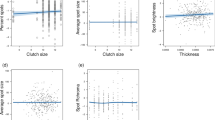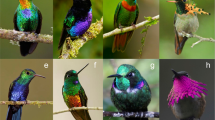Abstract
SOME time ago I wrote a short letter asking for information about the colours of birds' eggs, which appeared in NATURE of May 14, 1908. I read the answer to my letter in a subsequent number of NATURE, which, unfortunately, did not appear to me to throw much light on the subject. I would like to suggest that this colouring of eggs was in some way originally analogous to the change of colour observable in the chameleon and certain lizards, though by no means, at the same level of development. Although it is quite possible that the colouring in some cases is protective, or has become so, it does not seem that this is a fixed rule. Why should the egg of a starling, which generally builds on house-tops, be blue? The hedgesparrow's, again, is blue, while the thrush's is blue spotted with black, and the blackbird's is green, though the position of their nests is vastly similar. Again, on examining the excellent “clutches” at the Natural History Museum which exhibit the additional cuckoo's egg, one is struck by the variation in shade, which, according to observers, is matched by the bird itself.
This is a preview of subscription content, access via your institution
Access options
Subscribe to this journal
Receive 51 print issues and online access
$199.00 per year
only $3.90 per issue
Buy this article
- Purchase on Springer Link
- Instant access to full article PDF
Prices may be subject to local taxes which are calculated during checkout
Similar content being viewed by others
Author information
Authors and Affiliations
Rights and permissions
About this article
Cite this article
LESLIE, R. Coloration of Birds' Eggs. Nature 82, 157–158 (1909). https://doi.org/10.1038/082157d0
Issue Date:
DOI: https://doi.org/10.1038/082157d0
Comments
By submitting a comment you agree to abide by our Terms and Community Guidelines. If you find something abusive or that does not comply with our terms or guidelines please flag it as inappropriate.



